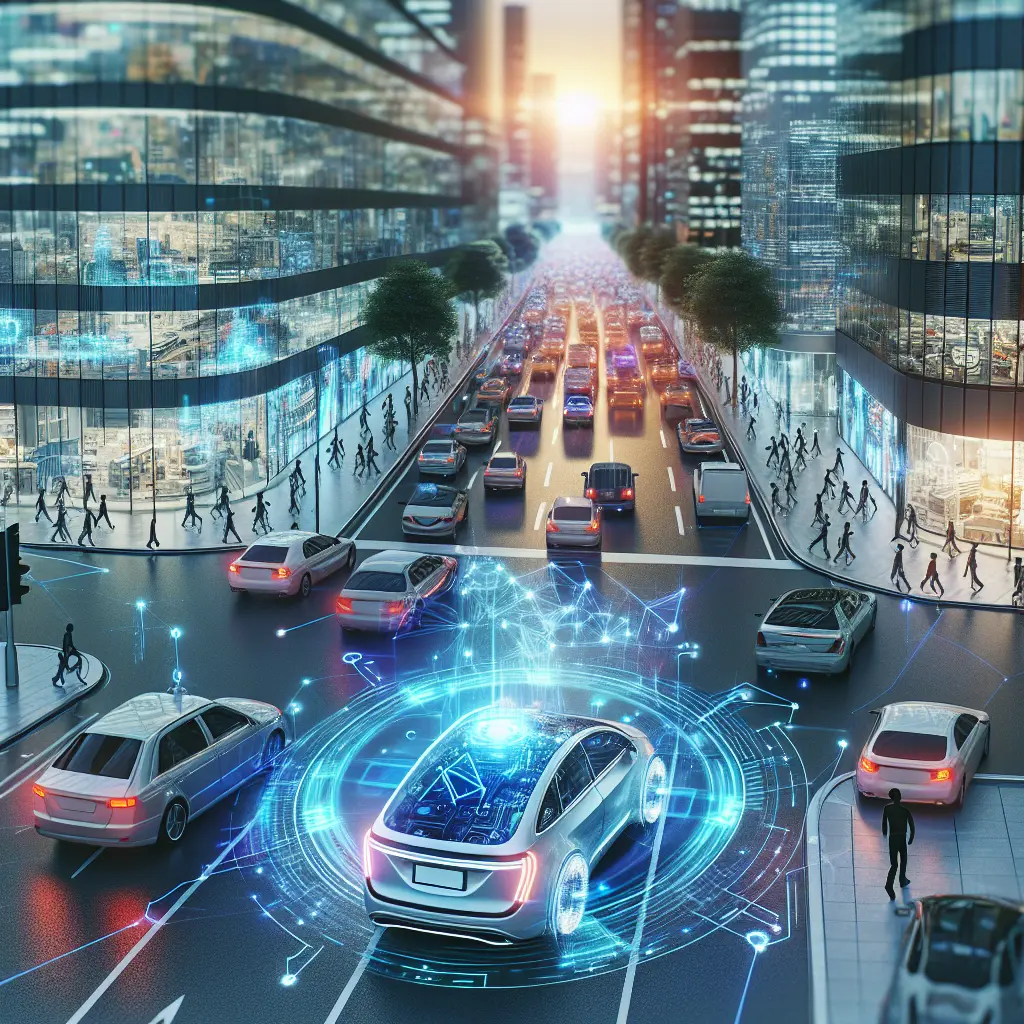
The Transformative Role of Artificial Intelligence in Self-Driving Cars
Artificial intelligence is revolutionizing the automotive industry, particularly in the realm of self-driving cars. As AI technology evolves, its integration into autonomous vehicles becomes increasingly sophisticated. The role of AI in self-driving technology is pivotal, providing the foundation for vehicles that can navigate without human intervention. Machine learning allows for continuous improvement in decision-making processes, while deep learning enhances the ability to perceive and interpret complex driving environments.
AI algorithms are crucial in processing vast amounts of data from various sensors, ensuring real-time responsiveness and safety. Neural networks further refine these processes, enabling vehicles to predict and adapt to dynamic conditions on the road. The impact of AI on self-driving cars is profound, promising a future where transportation is safer, more efficient, and accessible to all.
Artificial intelligence in self-driving cars is not just a futuristic concept; it's a present-day reality reshaping the transportation landscape. As AI technology advances, its integration into autonomous vehicles becomes more sophisticated, enhancing their ability to operate independently and safely.
The Impact of AI on Driving Dynamics
A fascinating development in AI-driven vehicle technology is Toyota's recent demonstration with dual drifting AI-powered race cars. This showcase underscores how AI algorithms can handle situations where vehicles lose traction, potentially intervening on behalf of human drivers during critical moments. This capability not only highlights the potential of AI in handling challenging driving conditions but also opens avenues for integrating these algorithms into everyday vehicles.
Overcoming Glitches: AI Safety in Autonomous Vehicles
Despite advancements, challenges persist. For instance, self-driving Waymo cars have been reported to disturb San Francisco residents by honking at each other due to glitching algorithms. These incidents highlight the importance of ensuring AI safety in autonomous vehicles. Reliable operation in diverse conditions is crucial for gaining public trust and acceptance.
AI and Autonomous Driving: A Continuous Evolution
The evolution of AI in autonomous vehicles is ongoing, with companies like Waymo pushing boundaries by deploying robotaxis on Bay Area freeways. This move marks a significant step toward integrating self-driving car technology into urban environments, offering a glimpse into the future of AI in transportation.
Navigating the Challenges of AI in the Automotive Industry
As cars increasingly become "rolling computers," automakers face challenges regarding how long these "smartphones on wheels" will be updated and supported. Unlike smartphones, which receive updates beyond their average ownership lifetime, determining the lifespan and support for AI advancements in self-driving cars remains an ongoing debate.
Global Collaboration and Competition
The competitive landscape is intensifying as companies collaborate to advance AI in autonomous driving. Notably, Tesla's biggest competitor has announced a collaboration with Uber to offer discounts on 100,000 electric vehicles and work on self-driving technology. Such partnerships signify the growing emphasis on integrating AI into transportation networks and enhancing accessibility.
Addressing Consumer Concerns
Despite innovations, there is a growing consumer backlash against self-driving vehicles, as predicted by a top JP Morgan strategist. Concerns over safety, data privacy, and job displacement are prominent, prompting companies to address these issues proactively.
The Role of AI Algorithms and Neural Networks
At the heart of self-driving car technology are AI algorithms and neural networks that process vast amounts of data from various sensors. These technologies ensure real-time responsiveness, allowing vehicles to perceive and interpret complex driving environments effectively. Deep learning enhances their ability to navigate dynamic conditions on the road, promising safer and more efficient transportation systems.
The Influence of International Players
The presence of Chinese self-driving cars on American roads has sparked discussions about data privacy and international competition. With these vehicles driving over 1.8 million miles and sending data back to China, concerns about data security are mounting. This highlights the need for clear regulations and international cooperation to ensure data integrity while fostering innovation.
Future Prospects and Innovations
Looking ahead, the future of AI in transportation is promising. Continuous advancements push the boundaries of what's possible, opening new possibilities for urban mobility. For instance, San Francisco's streets are now open to driverless taxis, marking a significant milestone in autonomous driving.
Moreover, the integration of AI in restaurants and other service industries further demonstrates its transformative potential. With self-driving taxis available for hailing and robot servers being tested in restaurants, the influence of AI extends beyond transportation, reshaping various aspects of daily life.
Conclusion
In conclusion, artificial intelligence plays an increasingly pivotal role in the evolution of self-driving cars, reshaping the future of transportation. As technology continues to evolve, addressing challenges related to safety, updates, and consumer concerns will be crucial. With international players contributing to this dynamic field, collaborative efforts are essential to foster innovation while ensuring data security and public trust.
The journey towards fully autonomous vehicles is a collaborative endeavor involving not just automakers but also policymakers, technology companies, and consumers. By fostering innovation while ensuring data security and public trust, we can unlock the potential of AI to revolutionize urban mobility.
We invite you to share your experiences and insights on this transformative journey. How do you see AI impacting your daily life? Your thoughts could inspire others in this exciting frontier of automotive innovation.
Author: Maxwell Brighton